
In an era marked by rapid technological advancements and complex geopolitical shifts, the importance of cybersecurity and strategic maritime control has never been more critical. This analysis draws attention to the certain initiatives undertaken by NATO, at the July 2024 Summit, where significant strides were made to "bolster the biggest reinforcement of the Alliance's collective defence in a generation." One of this significant strides is cybersecurity defense which is presented as a vital pillar in the contemporary security architecture of the Alliance. In this context, the Alliance establishes “the NATO Integrated Cyber Defence Centre to enhance network protection, situational awareness, and the implementation of cyberspace as an operational domain throughout peacetime, crisis and conflict; and developing a policy to augment the security of NATO’s networks.”[1] Yet, such advanced technological thrust coincides with enduring challenges in geopolitical navigation, notably through the strategic lens of the time-honored and age old 1936 Montreux Convention, which governs the delicate balance of naval power in the Black Sea region.
This juxtaposition of cyber advancements with traditional maritime strategies highlights a pivotal moment for NATO, as it seeks to reconcile its cutting-edge security initiatives with the age-old dictates of international maritime law and regional stability, underscored by Türkiye’s pivotal role in the enforcement of the Montreux Convention. As we explore these developments, the analysis aims to provide a nuanced understanding of NATO's dual approach to security—both in the cyber realm and the turbulent waters of the Black Sea, emphasizing the need for a harmonized strategy that respects both the sovereignty and strategic interests of its member states, particularly Türkiye, within the broader regional and global security framework.
1. Cybersecurity Initiatives: A Keystone of NATO's Strategic Evolution
The recent NATO Summit Declaration, articulated in July 2024, has significantly heightened the alliance's focus on cybersecurity, aligning it with broader strategic goals crucial for modern defense tactics. The Washington Summit marked a pivotal advancement in NATO's cybersecurity strategy, particularly through the establishment of the NATO Integrated Cyber Defence Centre. This new center aims to enhance the alliance's situational awareness and capabilities in addressing cyber vulnerabilities, thus bolstering overall security resilience across member states.[2]
In tandem with the creation of the cyber defense center, NATO leaders have revitalized the NATO Cyber Defense Pledge. This updated pledge mandates the establishment of new minimum cybersecurity practices to shield NATO’s networks and enhance the alliance's overall cyber resilience. This strategic enhancement is a direct response to the escalating frequency and sophistication of cyber threats, emphasizing the necessity to protect critical infrastructure and maintain robust digital defenses as a cornerstone of collective security [3].
Moreover, the summit has underscored the importance of real-time information sharing among allies. This initiative is designed to rapidly identify cyber threats, facilitate swift mitigation, and coordinate responses, thereby enhancing the collective defence ethos that underpins the alliance. The inclusion of select NATO partners in these discussions reflects a significant stride towards international collaboration, sharing best practices and reinforcing global cyber defence strategies[1][3].
The alignment of these cybersecurity initiatives with NATO’s broader goals such as collective defense, deterrence, and adaptation to modern threats highlights the strategic recalibrations necessitated by today’s security environment. By integrating advanced technologies and emphasizing cooperation, NATO is not merely responding to immediate threats but is proactively preparing for the complexities of future security challenges [4].
2. Navigating the Strait Path: NATO's Delicate Dance with the Montreux Convention
Building on the momentum of enhancing cybersecurity measures outlined in the NATO Summit Declaration, the focus shifts to a seemingly conventional but equally pivotal aspect: the Montreux Convention. This treaty, governing naval passage through the Turkish Straits, has been a cornerstone of Black Sea security and by extension, a crucial element in regional stability amidst the ongoing Russia-Ukraine conflict. The declaration's nod to Türkiye's implementation of this Convention is noteworthy but prompts a deeper examination of NATO's commitment and the strategic implications therein [5].
The acknowledgment of Türkiye's role underlines its strategic positioning within NATO, especially as a gatekeeper of the Black Sea. However, this recognition, while significant, skirts around the more pressing issues of enforcement and rigorous adherence to the treaty's provisions during heightened geopolitical tensions. The activation of the Black Sea Mine Countermeasures Task Group is a step forward but leaves unanswered questions about the comprehensive strategy NATO employs towards the Black Sea's volatile security landscape [6].
Furthermore, the Summit Declaration highlights non-financial contributions to Ukraine, including efforts under the Montreux Convention, which are essential yet not sufficiently spotlighted. This aspect underscores a broader issue: NATO's approach often seems to underplay the full strategic value of Türkiye's geographical and operational leverage in the Black Sea. The subtle acknowledgment of Türkiye's efforts in the Black Sea Grain Initiative and mediation endeavors illustrates a pattern of NATO's reliance on Türkiye's unique capabilities without robustly championing these roles in the broader security framework [7].
Critically, while NATO's 75th anniversary declarations reflect a strategic acknowledgment of the Montreux Convention's role, they fall short of addressing the need for a more pronounced and proactive support system for Türkiye. This oversight not only impacts the effectiveness of regional security measures but also potentially hampers the alliance's ability to project power and coordinate defense in a region marred by persistent conflict and emerging security challenges [8].
As NATO evolves to meet the demands of modern security threats, its engagement with the Montreux Convention must transcend traditional diplomatic acknowledgments. It requires a fortified stance that supports Türkiye in maintaining the Convention's integrity and enhancing Black Sea security. This approach is vital not only for the stability of the region but for ensuring the strategic coherence of NATO's broader defense objectives. As the alliance looks forward, it is imperative that it strengthens its commitments and operational strategies in alignment with the Montreux Convention, ensuring a balanced, effective, and legally sound framework that respects both the sovereignty of its member states and the geopolitical realities of today's security landscape.
3. Strategic Discrepancies in NATO’s Approach to the Montreux Convention and Regional Security
Amidst the backdrop of the ongoing Russia-Ukraine conflict, Türkiye's application of the 1936 Montreux Convention showcases a commitment to international law and regional stability. Notably, Türkiye's decision to deny passage to UK minehunter ships through the Turkish Straits highlights its rigorous enforcement of the Convention. This action underscores Türkiye’s role as a gatekeeper of the Black Sea, navigating complex geopolitical dynamics while adhering to its legal responsibilities under the Convention. Such a stance is crucial, not only for maintaining regional security but also in safeguarding the strategic balance within the Eurasian maritime corridor [9].
The superficial recognition of Türkiye’s efforts by NATO, particularly in its summit declarations, fails to align with the strategic importance of the Montreux Convention in the current geopolitical context. NATO’s documents often lack depth in addressing the nuanced challenges faced by Türkiye in managing the Turkish Straits, a critical juncture in Black Sea security. This oversight is emblematic of a broader issue within NATO's strategy — the underestimation of Türkiye's geographical and operational leverage as a regional stabilizer and a custodian of one of the world's most significant maritime chokepoints [10].
By integrating these insights, the analysis will emphasize the contrast between NATO's advancements in cybersecurity and its lagging approach in maritime strategy and legal diplomacy, particularly concerning the Montreux Convention. This will highlight the need for NATO to offer more than just diplomatic nods but to provide tangible support and strategic alignment with Türkiye's efforts in managing the Turkish Straits under the Convention's framework. Such an approach is vital for enhancing the alliance's operational effectiveness and for maintaining the legal and strategic integrity of NATO’s engagement in the Black Sea region [11].
4. Strengthening Commitments: The Need for Concrete Action on the Montreux Convention
The Montreux Convention, pivotal in controlling the naval passage through the Turkish Straits, serves as a linchpin for Black Sea security, especially amidst the ongoing tensions in Ukraine. While NATO's recent Summit Declaration does recognize Türkiye's crucial role in implementing this treaty, the actual commitments to this effect seem superficial, lacking the depth and strategic foresight necessary for genuine regional stability [12].
For example, as one experienced senior Turkish diplomat emphasized in his critical analysis, while NATO's documents mention Türkiye's compliance with the Montreux Convention, they do not adequately address the nuanced challenges this poses under current geopolitical pressures. The mere acknowledgment falls short of suggesting robust strategies to enhance maritime security or to support Türkiye in enforcing the convention against potential violations by other states. This oversight is problematic as it underestimates the strategic significance of the Turkish Straits, not just as a regional checkpoint but as a global security asset [13].
Moreover, NATO's approach has been criticized for not providing concrete measures or sufficient support to bolster Black Sea security, which is vital given the strategic importance of this region to both Eastern Europe and broader international stability. The criticism points towards a gap between NATO's declarations and its actionable commitments, suggesting a need for a more involved and clearly defined strategy that supports Türkiye in its role as a guardian of these pivotal maritime gateways [14].
The aforementioned critical analysis serves as a poignant reminder of the deficiencies in NATO's current strategy regarding the Montreux Convention. It underscores the necessity for NATO to evolve from mere acknowledgments to proactive and tangible support. Enhancing collaboration with Türkiye, detailing specific actionable measures, and publicly prioritizing the Montreux Convention within NATO’s strategic framework would not only affirm Türkiye's role but also fortify the alliance's capability to manage Black Sea security effectively [15].
As NATO seeks to adapt to modern security challenges, reinforcing its commitment to the Montreux Convention with explicit and robust support measures is imperative. This will ensure the treaty's effective rigorous implementation and uphold the regional stability that is crucial for maintaining the balance of power in Eastern Europe and beyond. For NATO, this means moving beyond superficial nods towards embracing a more comprehensive, action-oriented approach that resonates with the strategic importance of Türkiye's role in this critical juncture. It should not be forgotten that, although almost a century has passed since the signing of the 1936 Montreux Convention, it still functions as a regional and global safety valve. Türkiye is the guardian and sole implementer of the Convention.[16]
5. Conclusion
It is possible to say that the sentence in the 2024 NATO Summit Declaration, "We reiterate our continued support for the regional efforts of our Allies to maintain security, safety, stability and freedom of navigation in the Black Sea region, including, as appropriate, the 1936 Montreux Convention", when evaluated from an objective perspective, has a rather ambiguous meaning due to the presence of the phrase "as appropriate." This phrase might be perceived as a lack of clear commitment, potentially leaving room for interpretations or actions that do not fully align with the principles of the convention. Such vagueness could lead to uncertainty among Black Sea littoral states and other stakeholders about NATO's true intentions and the extent of its adherence to the convention. Additionally, this ambiguity opens the door for potential misinterpretation by both allies and adversaries. Allies might remain unsure about the extent to which NATO will enforce or adhere to the Montreux Convention, while adversaries might view this as a weakness or a lack of resolve, potentially emboldening aggressive actions in the region.
While this is the case, we find it strange that a retired former diplomat from the Ministry of Foreign Affairs of the Republic of Türkiye is thoughtlessly starting a brainstorming about amending the Montreux Convention ostensibly for domestic political reasons.[17] In this context, the sentence in the article of the retired diplomat in question, "In our country, especially nationalist retired officers have turned Montreux into an untouchable idol, like everything related to Atatürk." is inapropriate. It is most probable that those who engaged in such effort overlook the fact that while it is very easy to withdraw from the Montreux Convention based on its articles regarding termination (Article 28), the article regarding amendment of the Convention (Article 29) contains quite complicated provisions. In this respect Article 29 foresees a detailed procedure for tabling a revision proposal and for the voting proceeding in a possible revision conference which may be convened in case that no agreement reached for the amendment proposal through the diplomatic channels. Feridun Cemal Erkin, a former Foreign Minister of Türkiye and Ambassador, draws attention to this issue in his book entitled “Turkish-Soviet Relations and the Straits. “[18]
The Montreux Convention is among the rare international agreements that have kept their relevance throughout the years. The fact that the Convention is so resilient to the passage of time can be attributed to the delicate balance it established between the interests of the Black Sea coastal states and non-Black Sea states back in 1936. The 88 years that have passed also proves the successful implementation of the carefully crafted balance of the Convention by Türkiye. History has shown us that trying to open the Montreux Convention for discussion is equivalent to opening the Pandora’s Box. Trying to open the Pandora’s Box may cause problems more serious than what we had experienced in the past. It would not be wrong to state that the keeping the Montreux Convention as it stands has gained more validity than ever. For AVİM, Montreux Convention is still a functional regional and global safety valve for today’s world. Based on what past experience has shown us, this safety valve should be kept operational under the control of Türkiye.[19]
[1] “Washington Summit Declaration” (The North Atlantic Treaty Organization, July 10, 2024), https://www.nato.int/cps/en/natohq/official_texts_227678.htm.
[2] The White House, “FACT SHEET: The 2024 NATO Summit in Washington,” The White House, July 10, 2024, https://www.whitehouse.gov/briefing-room/statements-releases/2024/07/10/fact-sheet-the-2024-nato-summit-in-washington/; “Washington Summit Declaration.
[3] “Washington Summit Declaration”; “Cyber Security Aspect of the 2024 NATO Summit,” SOCRadar® Cyber Intelligence Inc., July 10, 2024, https://socradar.io/cyber-security-aspect-of-the-2024-nato-summit/.
[4] NATO, “Cyber Defence,” NATO, accessed August 3, 2024, https://www.nato.int/cps/en/natohq/topics_78170.htm.
[5] “Washington Summit Declaration”; “10 Key Issues for Türkiye Highlighted at NATO Summit,” accessed August 3, 2024, https://www.aa.com.tr/en/turkiye/10-key-issues-for-turkiye-highlighted-at-nato-summit/3271821#.
[6] “10 Key Issues for Türkiye Highlighted at NATO Summit”; “Washington Summit Declaration.”
[7] “Washington Summit Declaration,” 10; “10 Key Issues for Türkiye Highlighted at NATO Summit.”
[8] “Washington Summit Declaration”; Kemal Kirişci Güvenç Serhat, “Montreux Convention, at 85, Needs Tending for US-NATO-Russia Security and Stability,” Just Security, July 20, 2021, https://www.justsecurity.org/77524/montreux-convention-at-85-needs-tending-for-us-nato-russia-security-and-stability/.
[9] Teoman Ertuğrul Tulun, “Careful Management Of The Implementation Of The 1936 Montreux Convention In A Difficult And Changing Geopolitical Environment Of The Black Sea,” Center For Eurasian Studies (AVİM) 2024, no. 1 (January 18, 2024): 12, https://dx.doi.org/10.2139/ssrn.4706300.
[10] Tulun; Teoman Ertuğrul Tulun, “Efforts To Change Or Circumvent The Provisions Of The 1936 Montreux Straits Convention,” Center For Eurasian Studies (AVİM), Center For Eurasian Studies Analysis Series, 2024, no. 4 (March 28, 2024): 4.
[11] Tulun, “Efforts To Change Or Circumvent The Provisions Of The 1936 Montreux Straits Convention”; Tulun, “Careful Management Of The Implementation Of The 1936 Montreux Convention In A Difficult And Changing Geopolitical Environment Of The Black Sea.”
[12] “Washington Summit Declaration”; “10 Key Issues for Türkiye Highlighted at NATO Summit.”
[13] Ünal Ünsal, “NATO’nun Washington Zirvesi Deklarasyonu’ndaki Montrö detayı,” T24, accessed August 3, 2024, https://t24.com.tr/yazarlar/unal-unsal/nato-nun-washington-zirvesi-deklarasyonu-ndaki-montro-detayi,45697.
[14] Ünal Ünsal, “NATO’nun Washington Zirvesi Deklarasyonu’ndaki Montrö detayı.”
[15] Ünal Ünsal.
[16] Teoman Ertuğrul Tulun, The Montreux Convention: A Regional And Global Safety Valve, Report Series of Center for Eurasian Studies 17 (Ankara: Terazi Publishing and Center for Euraisan Studies, 2020).
[17] Selim Kuneralp, “Montrö Vaşington’da,” Serbestiyet (blog), August 5, 2024, https://serbestiyet.com/featured/montro-vasingtonda-177176/.
[18] Feridun Cemal Erkin, Türk-Sovyet İlişkileri ve Boğazlar Meselesi (Turkish-Soviet Relations and the
Straits Issue), (Ankara: Başnur Matbaası, 1968), 114–21.
[19] Teoman Ertuğrul Tulun. The Montruex Convention. T he Montreux Convention: A Regional And Global Safety Valve. Center for Eurasian Studies (AVİM) Report 17. March 2020 .Ankara, p. 40. ISBN: 978-605-69199-1-6 DOI: https://doi.org/10.6084/m9.figshare.11955780.v
© 2009-2025 Center for Eurasian Studies (AVİM) All Rights Reserved
No comments yet.
-
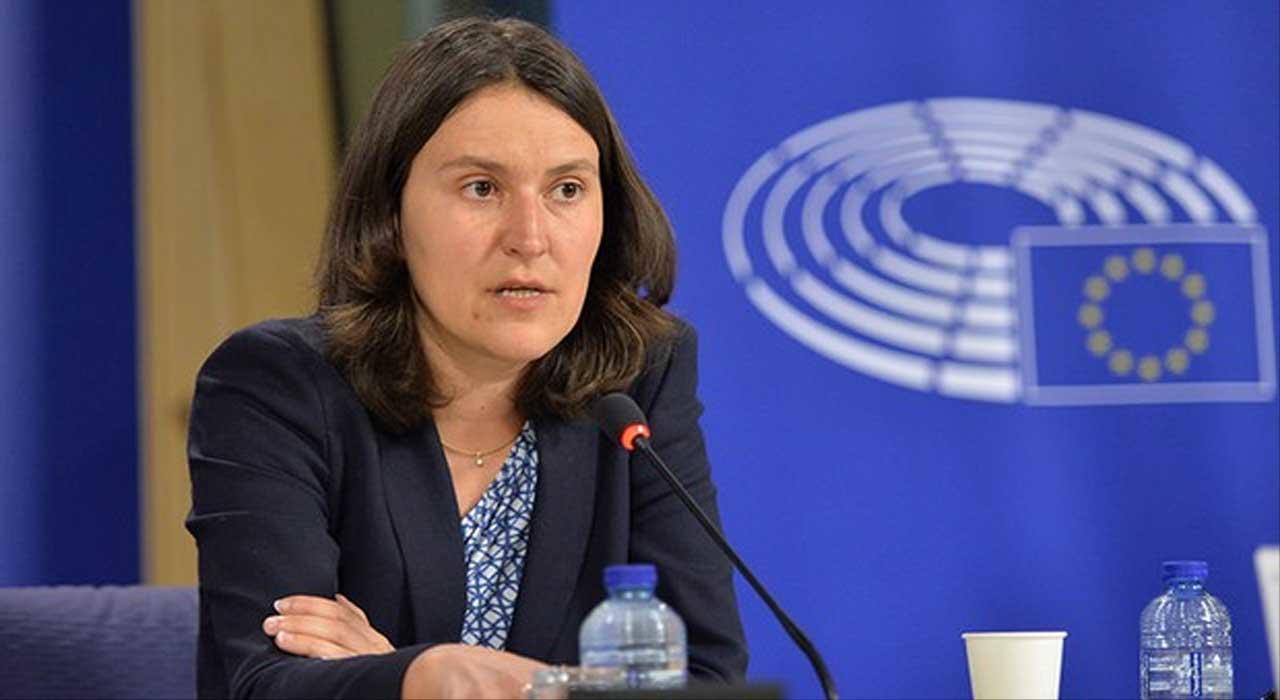 ADMISSION BY KATI PIRI: “ALLOWING CYPRUS IN (EU) WITHOUT A SOLUTION TO CYPRUS PROBLEM… IS A BIG MISTAKE”
ADMISSION BY KATI PIRI: “ALLOWING CYPRUS IN (EU) WITHOUT A SOLUTION TO CYPRUS PROBLEM… IS A BIG MISTAKE”
Teoman Ertuğrul TULUN 01.04.2019 -
 THE ORTHODOX CHURCH : ECCLESIASTICAL BATTLE OF MONTENEGRINS WITH THE SERBIAN ORTHODOX CHURCH
THE ORTHODOX CHURCH : ECCLESIASTICAL BATTLE OF MONTENEGRINS WITH THE SERBIAN ORTHODOX CHURCH
Teoman Ertuğrul TULUN 01.09.2022 -
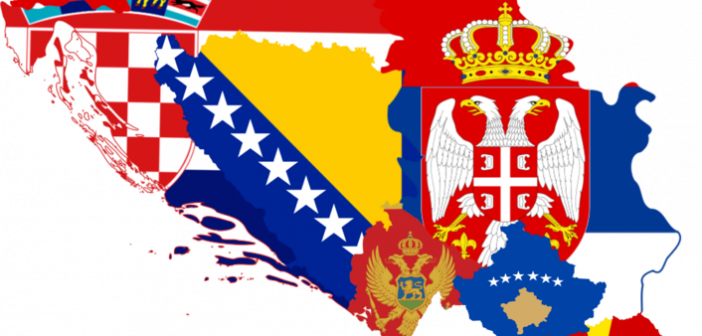 THE SPECTER OF RENEWED ARMED CONFLICTS IN THE BALKANS
THE SPECTER OF RENEWED ARMED CONFLICTS IN THE BALKANS
Teoman Ertuğrul TULUN 14.02.2017 -
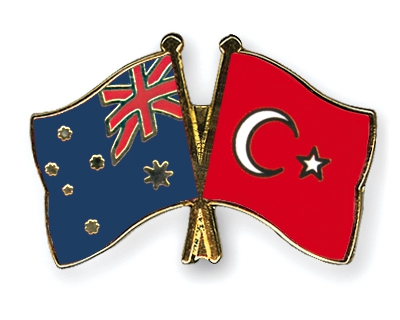 ARE THE SEEDS OF HOSTILITY AGAINST TURKS BEING SOWN IN AUSTRALIA?
ARE THE SEEDS OF HOSTILITY AGAINST TURKS BEING SOWN IN AUSTRALIA?
Teoman Ertuğrul TULUN 10.05.2019 -
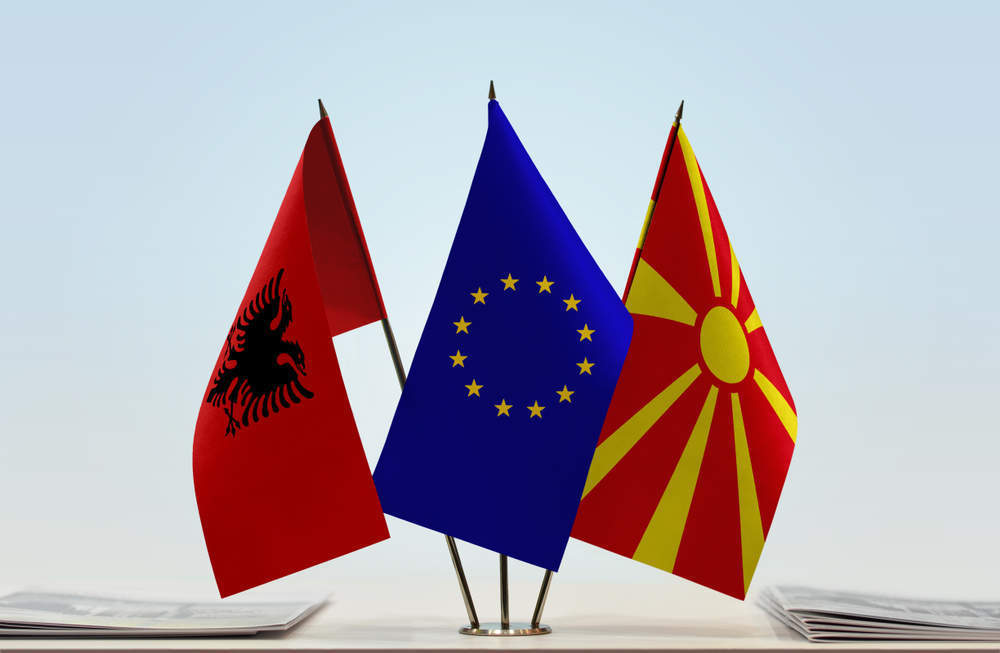 FRANCE AND GREECE HAVE FINALLY AGREED: EU ACCESSION TALKS BEGIN WITH ALBANIA AND NORTH MACEDONIA
FRANCE AND GREECE HAVE FINALLY AGREED: EU ACCESSION TALKS BEGIN WITH ALBANIA AND NORTH MACEDONIA
Teoman Ertuğrul TULUN 08.04.2020
-
 THE “NEJDEHISM” REMAINS OFFICIAL IN ARMENIA
THE “NEJDEHISM” REMAINS OFFICIAL IN ARMENIA
Maxime GAUIN 30.10.2019 -
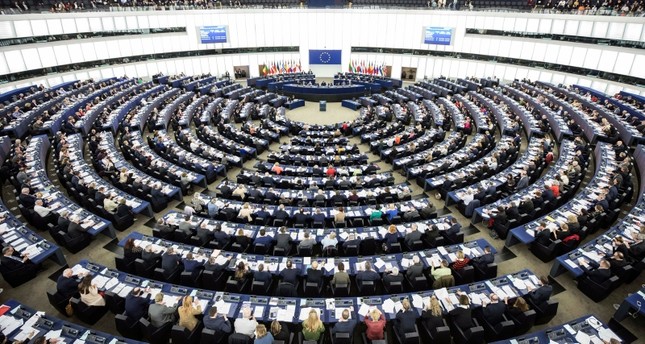 EUROPEAN PARLIAMENT’S UNCONSTRUCTIVE APPROACH TOWARDS TURKEY
EUROPEAN PARLIAMENT’S UNCONSTRUCTIVE APPROACH TOWARDS TURKEY
Teoman Ertuğrul TULUN 20.03.2019 -
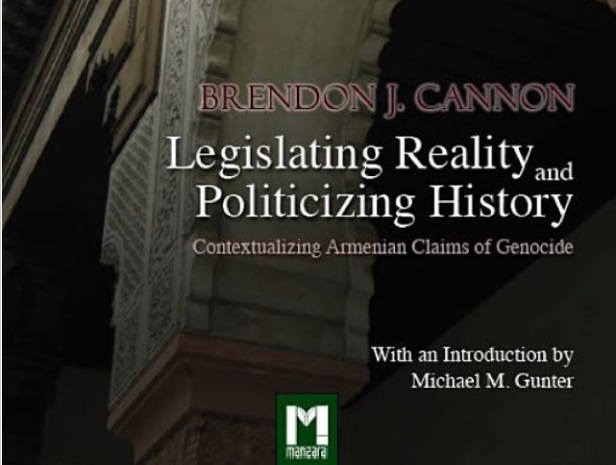 BOOK REVIEW: LEGISLATING REALITY AND POLITICIZING HISTORY
BOOK REVIEW: LEGISLATING REALITY AND POLITICIZING HISTORY
Sean Patrick SMYTH 16.05.2017 -
 ARAKAN AND THE PLIGHT OF THE ROHINGYA: CONFLICT UNDER AN UMBRELLA OF DEFINITIONS
ARAKAN AND THE PLIGHT OF THE ROHINGYA: CONFLICT UNDER AN UMBRELLA OF DEFINITIONS
Teoman Ertuğrul TULUN 09.10.2017 -
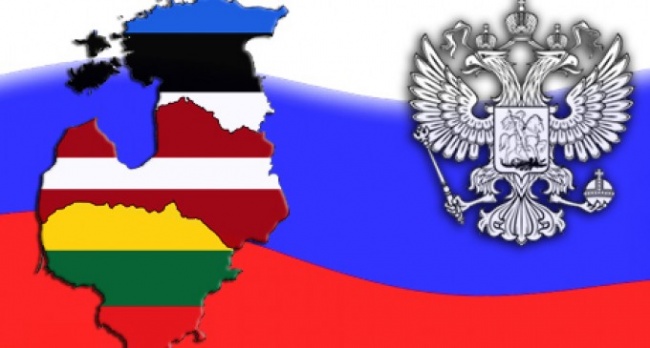 THE BALTIC COUNTRIES: 25 YEARS OF ACCOMPLISHMENT AND FEAR
THE BALTIC COUNTRIES: 25 YEARS OF ACCOMPLISHMENT AND FEAR
Teoman Ertuğrul TULUN 07.12.2016
-
25.01.2016
THE ARMENIAN QUESTION - BASIC KNOWLEDGE AND DOCUMENTATION -
12.06.2024
THE TRUTH WILL OUT -
27.03.2023
RADİKAL ERMENİ UNSURLARCA GERÇEKLEŞTİRİLEN MEZALİMLER VE VANDALİZM -
17.03.2023
PATRIOTISM PERVERTED -
23.02.2023
MEN ARE LIKE THAT -
03.02.2023
BAKÜ-TİFLİS-CEYHAN BORU HATTININ YAŞANAN TARİHİ -
16.12.2022
INTERNATIONAL SCHOLARS ON THE EVENTS OF 1915 -
07.12.2022
FAKE PHOTOS AND THE ARMENIAN PROPAGANDA -
07.12.2022
ERMENİ PROPAGANDASI VE SAHTE RESİMLER -
01.01.2022
A Letter From Japan - Strategically Mum: The Silence of the Armenians -
01.01.2022
Japonya'dan Bir Mektup - Stratejik Suskunluk: Ermenilerin Sessizliği -
03.06.2020
Anastas Mikoyan: Confessions of an Armenian Bolshevik -
08.04.2020
Sovyet Sonrası Ukrayna’da Devlet, Toplum ve Siyaset - Değişen Dinamikler, Dönüşen Kimlikler -
12.06.2018
Ermeni Sorunuyla İlgili İngiliz Belgeleri (1912-1923) - British Documents on Armenian Question (1912-1923) -
02.12.2016
Turkish-Russian Academics: A Historical Study on the Caucasus -
01.07.2016
Gürcistan'daki Müslüman Topluluklar: Azınlık Hakları, Kimlik, Siyaset -
10.03.2016
Armenian Diaspora: Diaspora, State and the Imagination of the Republic of Armenia -
24.01.2016
ERMENİ SORUNU - TEMEL BİLGİ VE BELGELER (2. BASKI)
-
AVİM Conference Hall 24.01.2023
CONFERENCE TITLED “HUNGARY’S PERSPECTIVES ON THE TURKIC WORLD"









